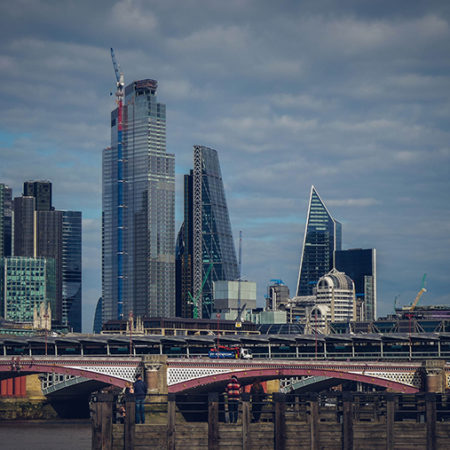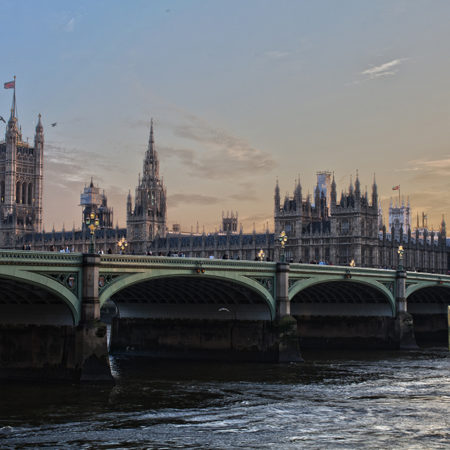Recent news confirms the UK will toughen its targets on greenhouse gas emissions for the next 15 years. Following recommendations by the government’s statutory climate advisors, carbon dioxide is to be cut by 78% by 2035 compared with 1990 levels.
Prime Minister Boris Johnson has said he’s determined to raise the bar on tackling climate change, and that a, “future UK will be home to pioneering businesses, new technologies and green innovation as we make progress to net zero emissions, laying the foundations for decades of economic growth in a way that creates thousands of jobs.”
So – the race is on to hit net zero, and the pathway has been laid out in terms of yet higher targets once again. But the reality is that it is businesses, that will shoulder the bulk of the work needed to manage the climate crisis.
With this in mind – an overview of the CCC’s paper, ‘The role of business in delivering the UK’s Net Zero ambition,’ could be most apt – as a signpost to where business actions and overarching targets should align.
Transformational times
The CCC pulls no punches, introducing its analysis with an expectation the private sector must invest and transform their business models in order to hit net zero on time.
Crucially, it adds that the UK’s transition to net zero must be specific to the technological, geographical, political, market, and behavioural context of the UK.
We already knew how essential localist approaches are to enable business to do its most sustainable work, but this overt reference hints businesses must truly examine local supply chains, markets and opportunities in depth. A light, top down approach won’t do.
The CCC’s thoughts on the intersection of policy and practice are key. It notes; ‘The government has an essential role to set frameworks which can enable equitable treatment within and between sectors, supporting successful competition while maintaining fairness as well as ensuring that sectors negatively impacted by the shift to net zero are supported with a just transition.’
Adaptation and agility are going to be key. Unsustainable business can’t survive, but legacy businesses can and should be supported while shifting into new greener modes of working. Government support on the timescale and complexities inherent here will be vital, and businesses should be ready and willing to lobby for what they need.

Measure, measure, measure
The adage you can’t manage what you can’t measure remains as valid as ever; and the CCC paper has good news. It reveals that in a recent survey of FTSE100 companies, 99% of companies are measuring and reporting their carbon emissions, 67% have set carbon reduction targets (45% net zero targets), and 73% are on track to meeting these targets.
Of course, the implication of this positivity is that any company trying to claim ignorance of the new targets and goals, compared against internal performance, will get deservedly short shrift.
The CCC makes this crystal clear: ‘UK companies, particularly medium and larger ones, should be measuring all emissions across Scopes 1-3, disclosing publicly these emissions, targeting carbon reduction, and setting then achieving phased emissions reduction action plans.’
It’s abundantly clear that responsibility and proactivity on these bottom-line requirements are no longer an option; they are unequivocally demanded.
Do the basics well; measure, disclose, target, act and adjust
Whilst the CCC’s notion above is encouraging to UK business, there is iron within their guidance. Companies must look to minimise their use of offsets, reserving their use only where no alternative is available.
Further, all offsets must demonstrate additionality and promote sustainable development, and should transition to more permanent, verifiable forms of GHG emissions removals in the longer term.
And a total shift to zero emissions for large HGV fleet operators, resulting in nearly 100% market share in 2040, is demanded. All onsite electricity use must become renewable, either on-site or procured to create new renewable generation.
The CCC also suggests that companies work with Government to develop minimum standards for more resource efficient products and construction. So, there’s an expectation that rather than simply reacting to 78% by 2035, companies must lead on standards and reimagining their activities.
A brave new world of promise and performance
In conclusion, the UK’s new 2035 target is tough. The CCC’s paper on getting to net zero is comprehensive, supportive, yet challenging and stringent.
The age of legacy business in the UK appears over. Vast new opportunities to embrace a green transition exist. Money and capital, both social, economic and environmental are there for the taking.
But for the naysayers, or for those who seek to stymie or slow the UK’s progress on climate action, a swift exit from both profit and the marketplace altogether will be the likely outcome. For UK business, the time for apathy on climate adaption is done.























